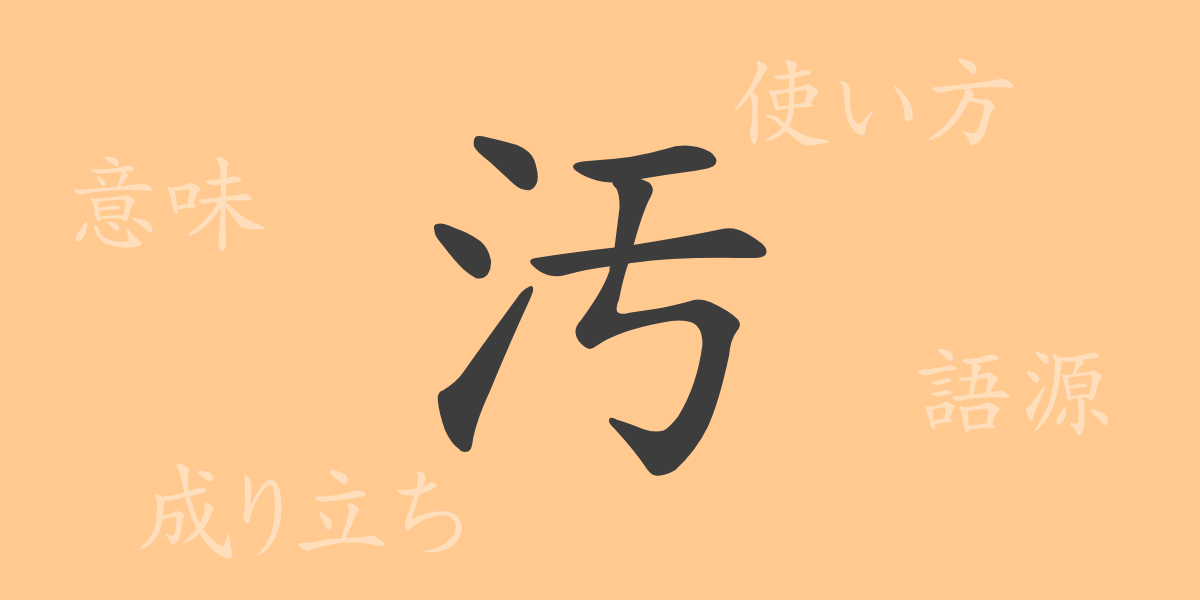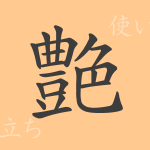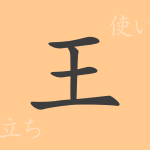“
The beauty of the Japanese language is reflected in its characters. Each common kanji has its own unique history and meaning, telling the depth of Japanese culture and language. Even the single character “”汚”” (Yogo) hides various expressions deeply related to our daily lives. Let’s delve into the world of “”汚”” (Yogo).
The Origin (Etymology) of 汚 (Yogo)
The kanji “”汚”” (Yogo) is said to have originated from a pictograph representing the accumulation of mud on the waterside in ancient China. The original meaning of this character referred to “”water becoming dirty,”” and from there, it came to have meanings such as “”to become dirty”” and “”to make dirty.”” Over time, it developed into various expressions, not only referring to physical dirt but also to moral and spiritual impurities.
The Meaning and Usage of 汚 (Yogo)
In modern Japanese, “”汚”” (Yogo) refers to physical dirt as well as the impurities of the heart caused by wrongdoing or immoral acts. For example, “”汚れた街”” (Yogo-reta -machi) literally means a dirty city, but metaphorically, it can also refer to a city rampant with crime and corruption. Words like “”汚名”” (Omei, disgrace) and “”汚職”” (Oshoku, corruption) express moral impurities related to honor and duties.
Reading, Stroke Count, and Radical of 汚 (Yogo)
Understanding the reading and components of the kanji “”汚”” (Yogo) allows for a deeper understanding.
- Reading: The on’yomi is “”o,”” and the kun’yomi includes “”kega.reru,”” “”kega.su,”” “”yogo.reru,”” “”yogo.su,”” and “”kitana.i.””
- Stroke Count: A total of 6 strokes.
- Radical: The radical is “”氵”” (Sanzui, water), classifying it as a kanji related to water.
Idioms, Phrases, and Proverbs Using 汚 (Yogo) and Their Meanings
There are abundant idioms, phrases, and proverbs containing “”汚”” (Yogo) in Japanese. Let’s introduce some representative ones here.
- 汚点 (Oten) – A shameful point or flaw due to past actions.
- 汚名 (Omei) – A bad reputation or dishonorable name.
- 汚染 (Osen) – The contamination of the natural environment or substances by impurities.
- 汚職 (Oshoku) – The abuse of authority by a public official to gain illicit benefits.
- 汚泥 (Odei) – Mud settled at the bottom of water or dirt contained in sewage.
Summary of 汚 (Yogo)
The kanji “”汚”” (Yogo) has various meanings depending on how it is used. It refers to physical dirt as well as mental and social impurities, playing an important role in our language. Understanding and properly using the rich expressive power of this single character is essential for a deeper understanding of Japanese. We hope that through this exploration, you have been able to catch a glimpse of the world of words woven by “”汚”” (Yogo).
“

























